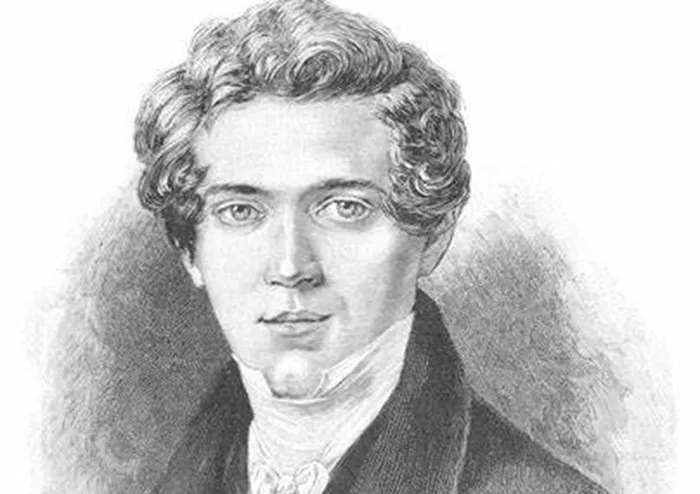The 19th century was a period of significant literary transformation in Germany. During this era, Romanticism and its later movements shaped German poetry and literature. One notable 19th century German poet who left a mark on both poetry and prose was Wilhelm Hauff. Though Hauff is best known for his fairy tales and short stories, his contributions to German poetry should not be overlooked. His poetic expressions often intertwined with his prose, reinforcing the themes of Romantic idealism, nationalism, and historical consciousness. This article explores the life, literary contributions, and poetic legacy of Wilhelm Hauff while drawing comparisons with other German poets of his time.
Wilhelm Hauff
Wilhelm Hauff was born on November 29, 1802, in Stuttgart, in the Kingdom of Württemberg. He studied theology at the University of Tübingen, a prominent institution that also educated other notable literary figures of the time. Hauff’s literary career was brief but prolific. He wrote extensively in multiple genres, including poetry, fairy tales, historical fiction, and satire. His ability to blend poetic storytelling with narrative depth made his works widely appreciated.
Hauff worked as a tutor and later as an editor, which allowed him to refine his literary skills. His storytelling drew inspiration from German folklore and the broader Romantic movement. His poetry, though less well known than his tales, reflected the Romantic fascination with nature, history, and the supernatural.
Hauff’s Poetic Contributions
While Wilhelm Hauff is primarily celebrated as a storyteller, his poetic works played a significant role in shaping his literary identity. Many of his stories include embedded poems that enhance their rhythm and emotional depth. His verses often reflected themes of nostalgia, heroism, and the mystical qualities of nature. Hauff’s poetry contributed to German poetry’s Romantic spirit, blending narrative and lyrical elements seamlessly.
One of Hauff’s notable poems is embedded in his prose work Lichtenstein (1826), a historical novel that romanticizes the medieval past of Württemberg. The poem within this novel captures the essence of Romantic poetry—glorification of the past, deep emotional expression, and a sense of longing for a bygone era.
Hauff Compared to Other 19th Century German Poets
Hauff’s poetic contributions can be better understood in the context of his contemporaries. Among the most influential 19th century German poets were Johann Wolfgang von Goethe, Friedrich Rückert, Heinrich Heine, and Eduard Mörike. While Goethe belonged to an earlier wave of Romanticism, Heine, Rückert, and Mörike were more closely aligned with Hauff’s period.
Heinrich Heine (1797–1856) was one of the most influential lyrical poets of 19th century German poetry. His satirical and often politically charged works stood in contrast to Hauff’s Romantic idealism. While Heine criticized the Romantic movement, Hauff embraced many of its themes, especially its fascination with medievalism and folklore.
Friedrich Rückert (1788–1866) was another significant figure in German poetry, known for his oriental-inspired poetry and lyricism. Rückert’s poetic approach was more linguistically sophisticated and philosophical than Hauff’s, yet both poets shared an interest in cultural storytelling and poetic expression within prose.
Eduard Mörike (1804–1875), a near contemporary of Hauff, produced lyrical poetry that often reflected a personal, intimate connection with nature and human emotion. Mörike’s style, like Hauff’s, was deeply influenced by Romanticism and its emphasis on beauty and sentimentality.
While Hauff did not reach the poetic heights of Heine or Rückert, his integration of poetry into his narratives gave his works a unique rhythm and charm. His ability to craft poetic passages within his storytelling is reminiscent of Goethe’s earlier works, where prose and poetry were often interwoven.
The Romantic Influence on Hauff’s Poetry
German poetry of the 19th century was heavily shaped by Romantic ideals, and Wilhelm Hauff was no exception. Romanticism emphasized individualism, nature, the past, and the supernatural. Hauff’s poetic contributions embraced these themes in several ways:
Medieval Nostalgia: Many of Hauff’s works, including Lichtenstein, reflect a longing for the chivalric past. This historical romanticism is a hallmark of 19th century German poetry, which often sought to revive the spirit of the Middle Ages.
Folklore and Myth: Like many German poets of the time, Hauff was deeply inspired by folk tales and myths. His poetry often echoes the oral traditions of German storytelling, making his verses accessible and evocative.
Nature and Emotion: Hauff’s poetry, much like that of his Romantic peers, celebrated the beauty of nature as a source of inspiration and reflection. The natural world was not just a backdrop but a character in itself, shaping human experiences and emotions.
Legacy and Influence
Though Wilhelm Hauff’s life was tragically short—he died in 1827 at the age of 24—his literary legacy endured. His fairy tales, including The Story of Little Muck and The Cold Heart, remain staples of German literature. While his poetry never reached the same level of recognition as his prose, it played an integral role in his storytelling. His ability to seamlessly weave poetic elements into his narratives set him apart from many other 19th century German poets.
Hauff’s works also contributed to the cultural heritage of Germany by preserving and romanticizing its folk traditions. In this way, he aligned with the broader efforts of the Romantic movement, which sought to celebrate national identity through literature and poetry.
Conclusion
Wilhelm Hauff, though often remembered for his fairy tales, was an important figure in 19th century German poetry. His poetic contributions, embedded within his stories, reflected the ideals of Romanticism and the cultural heritage of Germany. When compared to his contemporaries, Hauff’s poetry may seem secondary to his prose, yet it remains a vital aspect of his literary identity. His work continues to be appreciated for its lyrical quality, historical depth, and ability to capture the essence of German storytelling traditions. As a 19th century German poet, Hauff played a significant role in enriching German poetry with his unique blend of narrative and verse, leaving behind a legacy that continues to be studied and admired.

